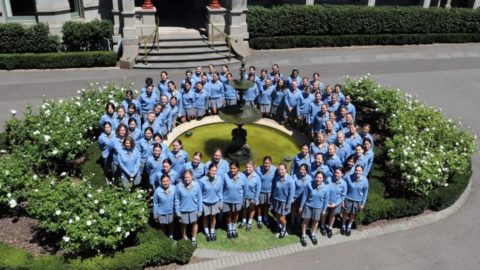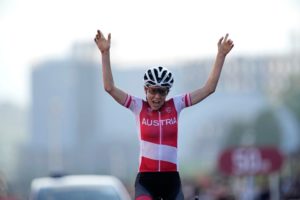Director’s Insights – Being in the Zone

Over the last two weeks I have been, like so many of us, captivated by the extraordinary athletic prowess and examples of perseverance by individuals in different sports in the Tokyo Olympics. These athletes, from the four corners of the globe, each have a story behind their achievements which is often just as fascinating as the athletic effort.
A characteristic demonstrated by athletes at this most elite of standards, is their capacity to focus and concentrate on the immediate task confronting them. A word often used to describe this is being in the ‘zone’.
This was abundantly evident in the Olympic women’s cycling road race by Anna Kiesenhofer of Austria who rode to win the gold medal against more fancied riders including the best rider in the world from the Netherlands. This race covered a distance of 137 kilometres over demanding terrain with significant changes in gradient. Kiesenhofer, who has a Phd in Mathematics, led a breakaway group from the start of the race and never relinquished the lead. It was absorbing coverage watching the last 10 kilometres to see if she could hang on from the fast approaching peloton of cyclists. Kiesenhofer was clearly in the ‘zone’ and was able to cast aside any other thoughts including the pain and suffering she must have been experiencing during such a gruelling race, to keep her rhythm and race to a memorable victory.
Being in the ‘zone’ is known in positive psychology as ‘flow’. This term was first coined by the psychologist Mihály Csíkszentmihályi to describe the mental state of the person performing some activity. They are fully immersed in a feeling of energised focus, full involvement and enjoyment in the process of the activity. In essence, flow is characterised by the complete absorption in what one does and a resulting transformation in one’s sense of time. Kiesenhofer was certainly in this state.
Elite athletes often refer to this feeling of ‘flow’ when competing. However, this mental state is not exclusive to athletes. Artists, musicians, writers, academics and people in many fields of life, express similar feelings of being totally absorbed in their field of endeavour and the ability to block out everything else.
Right now, as we embrace yet another lockdown, our Year 12 students are busy preparing themselves for the end of their academic studies at School. The final VCE exams are not that far away. They are much like Olympic athletes – given the years of preparation – as they approach their exams like an academic Olympics. The pressure they face is real and the standard to achieve is high. It will be important for our students to maintain a clear focus on what they need to do over their remaining time this year. No doubt there is still plenty of hard work ahead for the girls in the lead up to the exams. Slow and steady preparation, commitment and effort can all lead to being in the ‘zone’ and nothing else matters.
Many years ago, I was returning from trekking in Nepal on my first overseas trip. In the seat next to me was an American woman, Arlene Blum. Arlene had just led the first successful all-woman ascent of the notoriously difficult Himalayan peak Annapurna. Previously, only eight people (all male) had climbed the mountain. During the flight, Arlene shared with me some of the challenges and hardships in climbing this mountain. In particular she discussed the final summit day for the team and being in the ‘zone’. “Nothing else existed,” she said, “it was just us and the mountain with each person lost in their own thoughts and rhythm.”
Our Year 12 girls are climbing their own mountain, each following their chosen path to the summit. I hope they can take inspiration from the cyclist Kiesenhofer and others we have seen at the Olympics, and realise their dreams.



